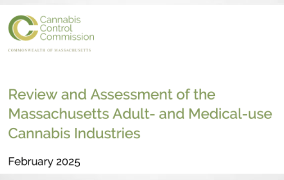The task of driving is one that should be handled with the utmost focus, coordination, and quick decision-making.
As a driver, you have to be in complete control of the situation. Unfortunately, alcohol consumption significantly interferes with the driver’s physical and cognitive abilities. The consequences of drinking and driving can be quite severe for everyone involved. Fatalities are not uncommon in these accidents.
How Alcohol Influences a Driver
Alcohol is a depressant that acts on the Central Nervous System (CNS). Once a person consumes it, it enters the bloodstream and travels to the brain. When it gets to the brain, it begins to disrupt communication between nerve cells.
This disruption manifests in a variety of ways that directly hinder safe driving.
Impaired Judgment and Decision-Making
When you’ve had some drinks, your brain gets a little cloudy. It’s like trying to see through the fog. This can make it tough to judge distances and speeds. You might think you’re going slower than you are or that you can squeeze between cars when there’s no space.
This kind of miscalculated thinking often leads to risky driving, like speeding, ignoring stop signs, or trying to switch lanes too fast.
Reduced Reaction Time
Alcohol slows down the body’s reaction time. Your brain takes longer to process information. You might see a danger sign up ahead, but it takes your brain a little extra time to understand what it means and tell your body to react.
By the time you hit the brakes, it might be too late.
Diminished Coordination
Alcohol messes with the messages your brain sends to your body. This makes it harder to control your car smoothly. It might be tough to stay in your lane, turn the wheel the right way, or slam on the brakes if you need to stop suddenly.
Blurred Vision and Increased Blind Spots
Drinking can make your vision blurry, like looking through dirty glasses. It can also make it harder to see things off to the side, like cars or bikes coming up next to you. This creates blind spots that you can’t see, even though they’re right there.
Drowsiness and Fatigue
Alcohol consumption can induce drowsiness and fatigue, even at low doses. This can lead to impaired vigilance, making it difficult for the driver to stay focused on the road and increasing the risk of falling asleep at the wheel.
The Devastating Impact on Other Road Users
The consequences of a drunk driving incident extend far beyond the intoxicated driver. When a driver’s abilities are compromised by alcohol, everyone on the road becomes vulnerable.
Here are some of the consequences of drunk drivers on other road users:
Pedestrians and Cyclists are Endangered
Pedestrians and cyclists are especially vulnerable to drunk drivers due to their lack of protection. An intoxicated driver’s impaired vision and reaction time can easily lead to tragic accidents involving these vulnerable road users.
Emotional Trauma
Even if a drunk driving accident doesn’t result in physical injuries, the emotional trauma it can cause for victims and their families can be immense.
Witnessing a drunk driving accident or losing a loved one in such a preventable incident can have lasting psychological effects.
Economic Burden for Victims
Drunk driving accidents lead to significant economic costs, including medical bills, lost wages, property damage, and increased insurance premiums. These costs are borne by individuals, families, and society as a whole.
Wrapping Up
Drinking and driving are not just bad for you; they can hurt other people too. Alcohol messes with your brain and body, making it really hard to drive safely. This can lead to terrible accidents that injure or even kill people.
Even if nobody gets hurt, a drunk driving crash can be very scary and upsetting for everyone involved. It can also cost a lot of money to fix cars and pay for medical bills.



















